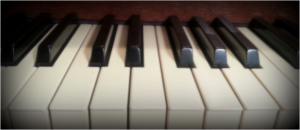Why No Instruments of Music?
Bobby Graham
 This question often comes from honest people, wondering why some of us do not use such mechanical instruments in the worship of the Lord. It is a fair question that demands a fair answer.
This question often comes from honest people, wondering why some of us do not use such mechanical instruments in the worship of the Lord. It is a fair question that demands a fair answer.
All worship of God is limited by whatever divine instructions have been given for our guidance. God has always prescribed what constitutes acceptable worship of Him under every dispensation that He has made with mankind. We must conform our efforts to His will and seek never to impose our own wills upon His. A lesson learned from the very first instance of worship recorded in the Old Testament — that of Cain and Abel in Genesis 4 — is that we must act by faith in God, based on what He has spoken, if our worship is to please Him (Hebrews 11:4). The same lesson can be learned from the Mosaic dispensation, in the case of Nadab and Abihu offering strange fire to the Lord in Leviticus 10. Whatever God has not sanctified as acceptable to Him in worship is unauthorized and constitutes will worship.
We also learn from the New Testament that worship can be will worship—worship established by one’s own will (self-directed worship). Paul spoke about this in Colossians 2:23. The Lord himself declared that worship based upon the doctrines and commandments of men is offered in vain (Matthew 15:8-9). Because no instruction from God under the New Testament shows the use of any music besides singing to be acceptable in worship, a person adding any other kind of music is doing so on the basis of human desires and pleasure, not the expressed will of God. Will worship fails to meet God’s approval, as seen in Colossians 2:23.
New Testament regulations for worship are those that apply to God’s people under the new covenant of Jesus Christ (Colossians 3:17). Old Testament regulations like those during David’s day have no relevance or application to people in the Lord’s church. To use the Old Testament is to burden oneself with the entire Mosaic Law, according to Galatians 5:1-4, including its insistence upon animal sacrifices and the Levitical priesthood. To accept part of the Old Testament practices but refuse others, in the absence of any such direction from the Lord to do so, is to make one’s own thinking superior to God’s thinking.
In spite of David’s use of the instrument or the encouragement to use such, as in Psalms 150, the New Testament instructs the Christian to sing and make melody in his heart to the Lord. The heart of the worshipper is the instrument that is employed in acceptable worship, and its melody is the only melody that the Lord stresses (Ephesians 5:19; Colossians 3:16).
In view of Biblical teaching along the lines discussed in this study, it is important to ask for New Testament teaching that authorizes the use of the mechanical instrument of music in worship to God. Where is that teaching found in the New Testament? If it can be produced, then we should all practice it and stop condemning its use. If it cannot be found, then all should omit its use in order to please the Lord, which is the very essence of worship.

